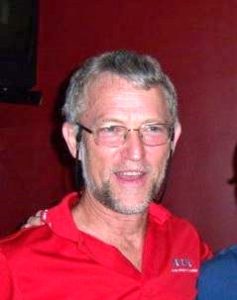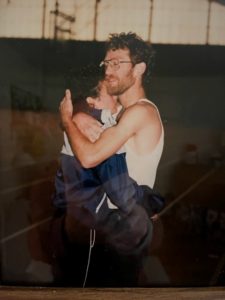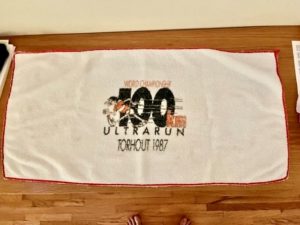


Brannen’s competitive breakthrough came in 1980. In his first foray beyond the 60km distance, he exploded into prominence by winning the JFK 50-Miler, the country’s oldest and largest ultra. The following year he won the Philadelphia-to-Atlantic City 60-mile race and in 1982 the Johnny Salo 200 Miler. Brannen then moved up to multi-day ultras. In 1983 he finished 5th in the LaRochelle 6-Day race in France, running 468 miles to rank as #2 American for the year. In 1984 he ran 223.2 miles to break Ray Krolewicz’s 48-Hour American Record by a mile, only to lose it back to Krolewicz within a year.




For this work, he was awarded USATF’s Presidents Award in 1992, the highest honor given to volunteers for administrative accomplishments at the national level. And, to complete an administrative trifecta, in 1990 Brannen founded the American Ultrarunning Association (AUA), which provided initial funding for US national ultra teams and administrative support for US national ultra championships. AUA also created this American Ultra Hall of Fame in 2004.
Brannen would continue to serve as the General Secretary of the IAU and as the Chairman of the USATF Ultra Subcommittee until the end of the 20th century. During that same period, he also served as Race Director of the Philadelphia to Atlantic City 100Km (which hosted the inaugural USA National 100Km Championship in 1987), The Weston 6-Day Race, and the Haverford 48-Hour Race.
During his administrative career, Dan had direct hands-on involvement in twenty-one U.S. National Ultra Championships, twelve 100 kms, and nine 24-hours. In addition, he was the manager/coordinator for U.S. Teams at nine World 100 km Championships.


Ultrarunning historian, Andy Milroy, wrote, “Without Dan Brannen, it is entirely possible that the IAU’s development would have been delayed, perhaps by decades. His work in USATF Committees ensured that the US Ultra championships and team representation happened.”
Ultrarunning Hall of Famer, Kevin Setnes added: “While a few people saw the importance of governance by a national governing body, no one possessed the foresight, saw the importance of, or had the political acumen to navigate the bureaucracy of TAC (USATF). Under Dan’s leadership, ultrarunning gained acceptance within the long-distance running body. While still fringe by its nature, the rules of competition, course measurement, and records helped legitimize the sport and gain its acceptance. Today’s recognized national championships and the formation of national teams are largely a credit to Brannen’s persistence.”
Read/Listen/Watch an Ultrarunning History Podcast episode featuring Dan Brannen: https://ultrarunninghistory.com/dan-brannen/
